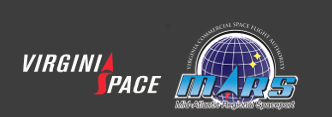
Virginia Space has finally signed another customer to use the state-owned spaceport on the Eastern Shore to launch orbital missions.
Gov. Terry McAuliffe announced that Tucson-based Vector Space Systems, a nanosatellite launch company, will make three commercial missions to low-Earth orbit from the Mid-Atlantic Regional Spaceport (MARS) at NASA Wallops Flight Facility over the next two years, with an option for five more.
The governor and other state officials heralded the agreement for furthering Virginia’s commercial space ambitions. McAuliffe is a big booster for Virginia as a major hub for the multibillion-dollar commercial launch business.
“It is a testament to Virginia’s highly skilled workforce and state-of-the-art facilities for this dynamic, 21st-century company to choose MARS as a launch site,” McAuliffe said in a statement announcing the agreement.
MARS was built at a cost of nearly $150 million to enable Dulles-based space transportation company Orbital ATK to launch resupply missions from Virginia to the International Space Station under a $1.9 billion commercial contract with NASA. Orbital is set to launch its latest mission from MARS next month.
Virginia Space, which manages the spaceport, has been actively seeking other commercial customers to expand operations and help justify the investment.
In a statement, Virginia Space Executive Director Dale Nash called the partnership “an excellent fit” between Vector’s needs and the capabilities that MARS and NASA Wallops can provide.
Jim Cantrell, CEO and co-founder of Vector, said it marks a “significant milestone” and the start of a “strong and growing partnership.”
Vector was founded by the team that originally founded SpaceX, which is also under a NASA commercial contract to resupply the space station. The company also includes veterans from Virgin Galactic, McDonnell Douglas, Boeing, Sea Launch and VMware.
According to Vector, its goal is to provide affordable and flexible launch services to start-ups and innovators. The initial launches from MARS will help validate and mature its launch vehicle design and operations.
The Vector-R rocket intended for MARS is a simple two-stage booster that can carry payloads of up 66 kilograms, about 145 pounds, to low-Earth orbit. It operates from a mobile launch platform.
Virginia’s spaceport is one of only four in the country licensed by the FAA to launch payloads to orbit. The others are in California, Florida and Alaska, but only Virginia and Florida are capable of launching to the ISS. MARS has also launched science missions to the moon.
Virginia Space is seeking more commercial, military and academic customers, both for the spaceport and for a nearby $5 million airstrip for aerial, land and submersible drone research and development that officially kicked off in May.

